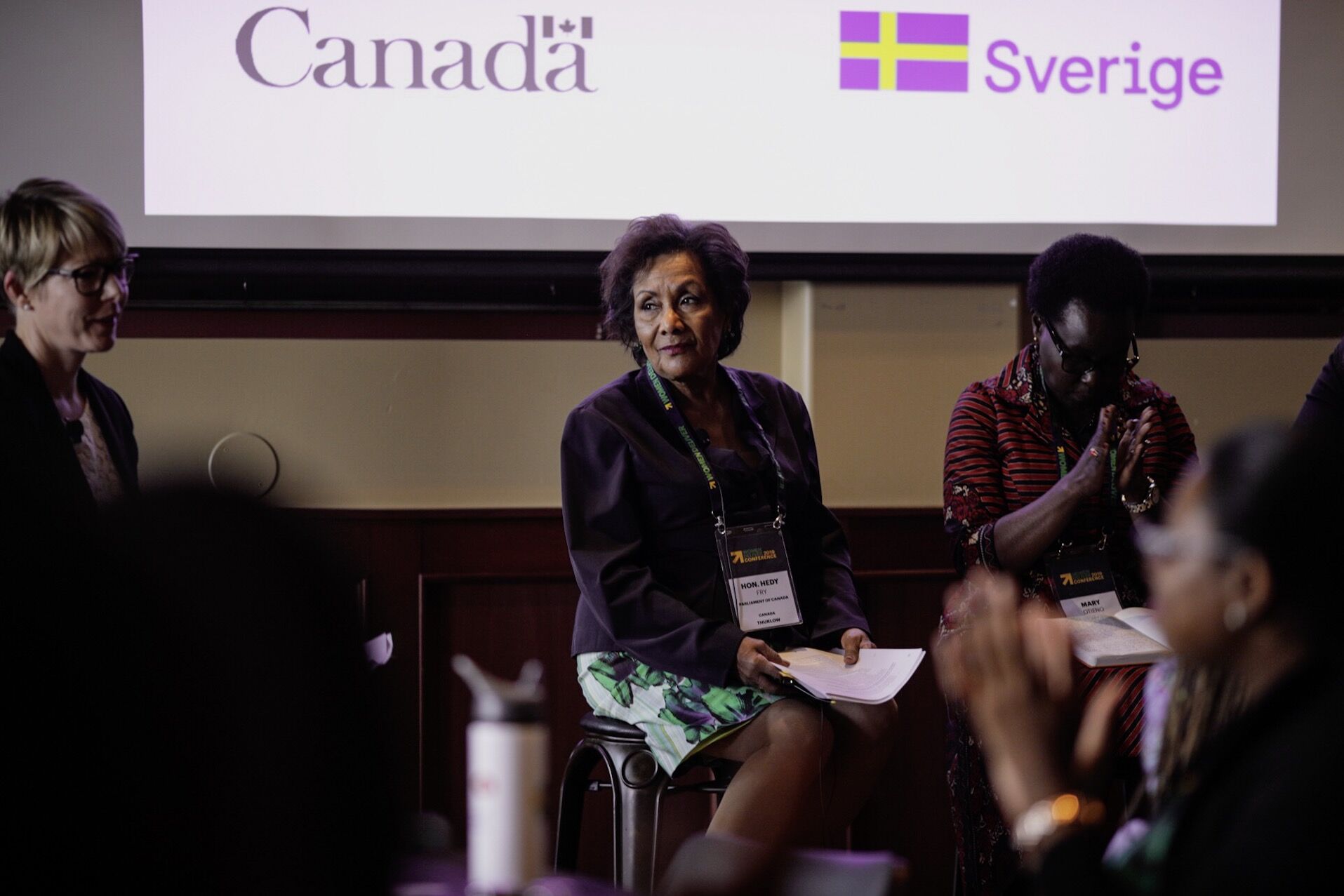Vancouver hosted the Women Deliver conference last month. Thousands of delegates from around the world including MPs, NGOs, corporations, philanthropists, and media gathered to listen, discuss, recommend, and report on the status of women globally.
Hosting the conference was a feather in the cap for Canada. We’ve been a leading voice on the world stage for gender equality. Indeed, the prime minister’s 10-year pledge of $1.4 billion per year in aid with the goal of advancing women’s equality shows Canada’s clear commitment to women’s rights as human rights.
National and international media covered the massive plenary sessions (especially when celebrities were present). However, many of the smaller working sessions didn’t receive any media attention—a missed opportunity, as these sessions were where the multifactorial elements, challenges, and opportunities were discussed, debated, and recommended.
As the Special Gender Representative for the OSCE Parliamentary Assembly and chair of the Canadian Association of Parliamentarians for Population and Development, I attended many of these sessions, often as moderator, chair, or as a panelist.
Here are some of the things that the media missed and many Canadians were unaware of:
Intersectionality
This has become a popular buzz word, but it essentially means that women (nor men, nor transgender individuals) are not a generic mass. Their realities and challenges are defined not only by their gender, but other, intersecting factors like race, ethnicity, disability, religion, age, social status, sexual orientation, Indigenous status, and immigrant or refugee status. If we are to achieve true equality we must consider these intersecting factors.
Migration
There are 70 million displaced people globally. A majority of them are women and children. As displaced persons they have no homeland, and they are often exploited into forced labour and/or sexual trafficking.
They are fleeing climate change, which often makes access to food and shelter unsustainable. They are trying to find a way to feed their families.
They are fleeing poverty, and are trying to find economic opportunity for themselves and their children so they can have access to housing, education, and health. They want better lives for the next generation. This is something we all seek but some of us are lucky to live in countries with strong, socially progressive, policies, and programs.
They are fleeing conflict, seeking freedom from persecution because of ethnic, racial, religious, tribal, or Indigenous status. We in Canada understand that. Our nation, after both world wars and other conflicts like the Vietnam War, was built by people fleeing persecution, seeking freedom and economic opportunity.
Sexual and Reproductive Health
Much discussion and testimony was generated by residents of countries that continue to prevent access to sexual and reproductive health information, access to abortion where legal, and access to prenatal, reproductive, and postpartum care.
Under Stephen Harper’s government, Canada was one of those nations that denied some of these rights to developing countries seeking aid. Right-wing ideologues and other political groups (and nations themselves) continue to tie foreign aid to restrictive conditions that negatively impact women’s health globally. These groups are on the rise.
The human right of women to choose their reproductive paths is an inalienable one. Here in Canada it is enshrined in section 7 of the Charter of Rights and Freedoms. Women denied full sexual and reproductive services often die from pregnancy-related complications. Evidence shows that children under five years of age, in developing countries, do not survive six months after the death of a mother.
Violence Against Women
This is a reality in every country in the world, including Canada. The violence can be societal or domestic. Globally, one in three women face gender-based violence and 35 percent of women have experienced domestic violence from an intimate partner. The movements to deny or repeal policies that prevent violence against women are also on the rise in many countries.
Opponents of antiviolence campaigns cite “family values” and tradition as the reason for this. But the question remains: how do you build strong families—and thriving societies—when mothers, sisters, daughters, and wives are subjected to physical, sexual, and psychological violence?
Evidence now shows that many boys raised in such environments tend to become abusers themselves. Many girls raised in these environments grow up and experience abusive relationships as adults. Surely this weakens the family over generations.
Women Deliver
The Women Deliver conference was about disseminating the facts, discussing the challenges, sharing proven solutions and best practices. It was a call to like-minded nations, businesses, and citizens to help empower women.
Here’s to a brave new world in which women take their rightful place alongside men for the betterment of economic, social, and generational outcomes.





